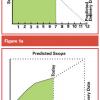People & Teams
Better Software Magazine Articles
|
|
Rescuing a Captive Project Allowing an individual to hold a project hostage to his knowledge and expertise is bad for the project and for the team. Fiona Charles describes one captive project and shows how it could have been remedied. |
|
|
Adapting Inspections to the Twenty-first Century How do you adapt inspections to a twenty-first century distributed workforce? A key part of the inspection process is the team meeting, which provides peer pressure to participate and consensus on defects. Teams working in multiple time zones have limited opportunities for the team meeting. A list of requirements and the functions needed to solve this problem based on real-world experiences should help anyone faced with this problem. |
||
|
Predicting the Past Developing an accurate prediction process is complex, time consuming, and difficult. But, basing predictions on causality rather than correlation and learning how to "predict the past" can help us gain confidence in the validity of our work. |
||
 |
Feel the Burn: Getting the Most Out of Burn Charts Burn-down charts have become a popular project artifact, but too often, people accept the default chart from whatever project management tool they're using. What choices can we make about the chart format and scale that will help us create charts that answer the questions that are really important to us? And when the chart looks "funny," what could it possible mean? |
|
|
Time to Let Go of Obsolete Jobs Town crier, elevator operator, gas lamp lighter, carbon paper distributor, telegraph operator—you probably haven't seen many help wanted ads for these occupations lately. Why? Because these occupations are gone—obsolete, unnecessary, outdated. We just don't need them anymore. When new paradigms are created, new jobs are often created with them. And sometimes, existing jobs are no longer relevant. |
||
|
Scrum: Using High-impact Teamwork to Tackle Software Development Projects For organizations trying to do more with less in the current economy, knowing where to turn for help can be a big question mark. But as Laszlo Szalvay of Danube explains, Scrum is one possible solution. This agile method of project management is quickly transforming the way software is developed by bringing teams together through frequent communication and high-impact collaboration, resulting in increased productivity and an ability to build a better product faster. |
||
|
Do You Know Why You Are Doing That? It's easy to get caught up in the inertia of a project and forget to ask exactly what we are developing, who our customers are, and what their goals with our software might be. Few software projects have the time and budget to figure out what their project is through trial and error. Getting clarity on project focus not only helps productivity, working to create software that people actually need increases our chances for success. |
||
|
Three Pounds of Manure in a Two-Pound Sack Multitasking is not a magical cure for getting too much work done by too few resources. Listen in as Payson Hall eavesdrops on a coaching session between two managers about how to assign and prioritize work. |
||
|
Learning from Experience: Software Testers Need More than Book Learning People often point to requirements documents and process manuals as ways to guide a new tester. Research into knowledge transfer, as described in The Social Life of Information, suggests that there is much more to the process of learning. Michael Bolton describes his own experiences on a new project, noting how the documentation helped ... and didn't. |
||
|
Resistance Is Futile Why do so many people resist change, even when that change will be for the better? It's simple, really. Every change ends something, and endings mean loss. People don't like loss. Even the best changes mean something familiar will end. |










